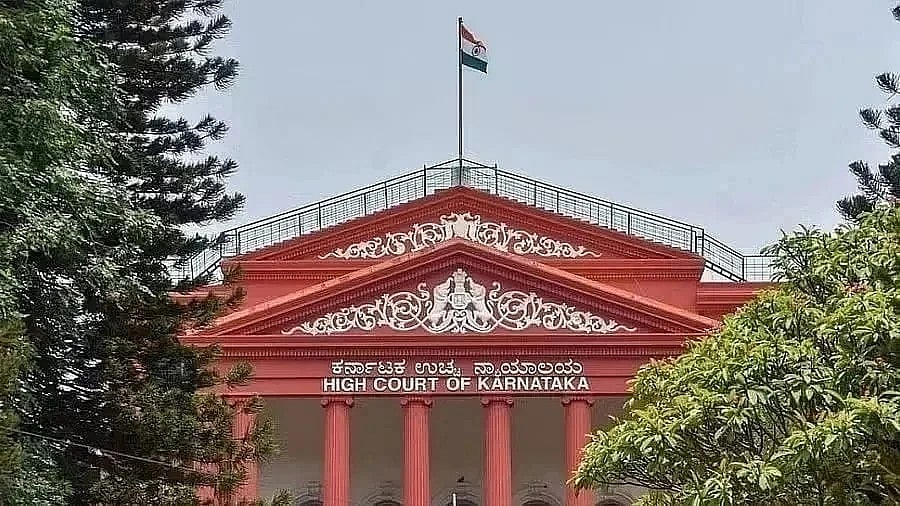
Karnataka High Court
Credit: DH File Photo
Bengaluru: The Karnataka High Court on Friday orders notice to the state government in a batch of PILs challenging the state wide Social Economic Survey commencing from September 22.
The petitioners primarily contended that the survey in substance amounts to a caste census which falls exclusively within the domain of the union government under Entry 69, List I of the Seventh Schedule of the constitution.
A division bench comprising Justices Anu Sivaraman and Rajesh Rai K directed the matters to be listed on Monday. The bench also ordered notices to the Karnataka State Backward Classes Commission and Registrar General and Census Commissioner of India.
The petitions are filed by the Rajya Vokkaliga Sangha, Akhila Karnataka Brahmana Maha Sabha, members of the Akhila Bharata Veerashaiva Lingayata Mahasabha and by certain individuals including KN Subba Reddy, former President of the Advocates Association of Bengaluru, and another by the members belonging to different OBC castes.
On August 13, the state government had issued an order to conduct survey of the citizens digitally through the E-Governance department. In the subsequent order, it was stated that the survey be conducted through Digital App allegedly prepared on the basis of electric meters. The survey is scheduled to commence on September 22 and conclude on October 7.
The petitions said that section 9 (1) of Backward Classes Commission Act 1995 only empowers the commission to conduct survey on social and educational status, in order to identify their backwardness in those fields. Hence, the orders for conducting survey of all castes are beyond the jurisdiction of Backward Classes Commission as those castes are not notified in the Act.
In specific contentions, the Brahmana Sabha said the Brahmin class has been subdivided into several entities in the caste list announced in the hand book and that the questionnaire is misleading. The hand book lists a total 1561 castes without showing the difference between the main caste and the sub-caste, the petition said.
According to the petition, the handbook has created new castes such as Brahmin Christians, Vyasa Brahmana Christians etc., which are without any basis. The petition prayed for declaration that a survey based on caste is in contravention of the Backward Classes Commission Act, 1995.
The Rajya Vokkaliga Sangha stated that a survey to enumerate nearly seven crore individuals within 15 days itself is arbitrary and unscientific. The petition said that the commission has inflated sub-castes into separate castes, expanding the list from 1,400 to 1,561 in an arbitrary and politically motivated manner.
“The survey methodology substitutes statutory house-listing with reliance on electricity meter numbers and geo-tagging and proposes unlawful linkage of caste particulars with Aadhaar, ration cards, and phone numbers which is violation of the right to privacy under Article 21 as recognised in Justice K S Puttaswamy case of the Apex Court,” the petition said.
In their petitions, the members of Akhila Bharata Veerashaiva Lingayata Mahasabha stated that the number of sub-castes under the category of Veerashaiva-Lingayats has been inexplicably increased from 75, as recorded in the earlier report of backward class Commission, to 135 in the present handbook. “Once the numerical data of each caste is formally notified, it will inevitably give rise to several adverse and immediate consequences.
Firstly, so-called "quota wars" will emerge, with the government restructuring or expanding reservation benefits in favor of caste groups with larger numbers. Secondly, this will lead to politics of appeasement, wherein subsidies, facilities, and welfare benefits will be manipulated to secure the support of particular caste groups,” the petition said, adding that such consequences are antithetical to the secular character.